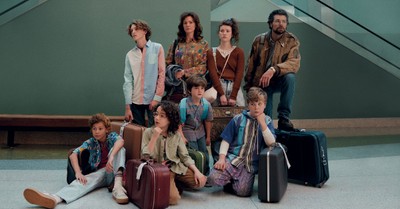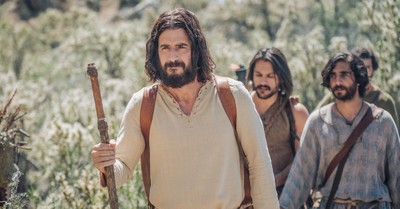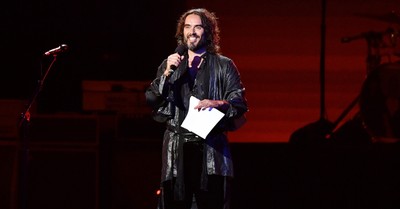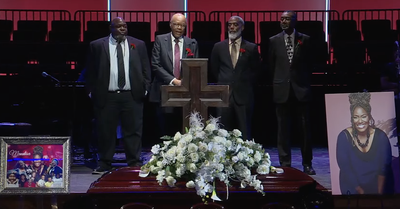When sex is divorced from marriage and procreation, bad things happen. Of the many cases that prove this point, here’s another.
A recent story in the Washington Post described the story of Kianni Arroyo, who is on a three-year quest to meet all of her half-siblings. It’s not as idyllic as it sounds… So far she has found forty-four of them. They live in eight states and four different countries.
The “father” of these children was, of course, a sperm donor, known affectionately to Kianni as “Donor #2757.”
As the story’s title “44 Siblings and Counting” suggests, there may be even more. Apparently, “Donor #2757” was very popular with customers of the sperm bank. Some women “liked his looks and his artistic background.” Others liked his family pedigree. Still, others thought — I’m not making this up — that he seemed like the kind of guy they’d like to date.
That’s how Kianni wound up with “forty-four siblings and counting.” And “Donor #2757” is nowhere near the record-holder. One Canadian donor has fathered at least 150 children.
As with abortion, the U.S. is one of the most permissive countries when it comes to sperm donations. According to the Post, “while Britain, Norway, China, and other countries have passed laws limiting the number of children conceived per donor, the United States relies solely on voluntary guidelines.”
In fact, the FDA recently rejected an attempt to limit the number of children a donor could father because it claimed to lack jurisdiction. This was fine according to “a spokesman for the American Society for Reproductive Medicine,” who said that the proposal would have “infringed on the right to privacy and to procreate, giving government ‘control over who has children with whom.’”
This is nonsense. The government already controls “who has children with whom.” When my wife and I applied for a marriage license, one of the questions we were asked was if we were related to each other.
It’s a legitimate question of government concern due to the health risks for any offspring. In a world where one man can have dozens or hundreds of offspring, the same risk is real.
Ten years ago, a married British couple discovered to their horror that they were fraternal twins who had been adopted by different families as infants. When you have dozens, even hundreds, of half-siblings the chances of “accidental incest” are much higher.
Even if that challenge is avoided, children conceived through sperm donation face obstacles others don’t. A 2010 study found that “donor offspring are twice as likely as those raised by biological parents to report problems with the law before age 25.” They were twice as likely to report substance abuse and fifty percent more likely to report mental health problems.
The obvious, but rarely asked question is “Why?” The authors’ conclusion was that “there’s really no such thing as a ‘donor.’ Every child has a biological father.” The absence of a connection to that father is felt keenly by these children.
Then there’s the elephant in the room: According to the Donor Sibling Registry, less than one-fifth of the parents of its members are married couples. Half are single women and a third are same-sex couples.
In other words, the vast majority of donor-conceived children are born to women who either can’t or won’t provide them with a father whom they can ever hope to know.
To put it bluntly, the needs of children have taken a back seat to adult self-fulfillment. It’s the most repeated lie of the sexual revolution: “The kids will be fine.” Little wonder that half of the donor-conceived children expressed “concerns or serious objections to donor conception.”
Actually, there’s no wonder. Our society repeatedly chooses to ignore the risks that our illusions of autonomy heap on the heads of our children. And so, we’ve sentenced a whole group of people to spend their lives searching for connections that should be theirs by birthright.
BreakPoint is a Christian worldview ministry that seeks to build and resource a movement of Christians committed to living and defending Christian worldview in all areas of life. Begun by Chuck Colson in 1991 as a daily radio broadcast, BreakPoint provides a Christian perspective on today’s news and trends via radio, interactive media, and print. Today BreakPoint commentaries, co-hosted by Eric Metaxas and John Stonestreet, air daily on more than 1,200 outlets with an estimated weekly listening audience of eight million people. Feel free to contact us at BreakPoint.org where you can read and search for answers to common questions.
John Stonestreet, the host of The Point, a daily national radio program, provides thought-provoking commentaries on current events and life issues from a biblical worldview. John holds degrees from Trinity Evangelical Divinity School (IL) and Bryan College (TN), and is the co-author of Making Sense of Your World: A Biblical Worldview.
Publication date: October 17, 2018
Photo courtesy: Jacek Dylag/Unsplash











